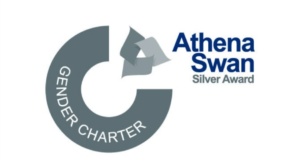Liberal arts students taught to adopt ‘growth mindset of interest’ perform better in maths and science

Students who see themselves as ‘not a science or maths person’ can become more interested – and perform better – in maths and science if taught to understand that their interests are developed, not fixed.
The belief that interests and passions are inherent and fixed rather than developed is a psychological barrier that can prevent many liberal arts university students from exploring and excelling in maths and science, according to a team of researchers including Dr Paul O’Keefe from the University of Exeter Business School.
To address this, the researchers created a novel “growth mindset of interest” intervention to remove that barrier and improve students’ outcomes in subjects they might otherwise avoid.
Dr O’Keefe explains that undergraduates are commonly urged to “find their passion”, but such a sentiment can discourage them from developing academic interests beyond the ones they have already “found”.
“Moreover, being conversant in science, technology, engineering, and maths (STEM) plays a critical role in today’s job market, and innovations often require insights that bridge the arts and sciences,” said Dr O’Keefe, who undertook the research while at Yale-NUS College in Singapore.
But in an intervention designed to encourage liberal arts undergraduates to view interests as developable, the researchers were able to increase interest and improve grades in mandatory maths and science courses compared to a control condition that taught optimal study skills.
Across two studies, the researchers asked around 750 first-year liberal arts undergraduates in Singapore—most of whom identified as having interests in arts, humanities, and social sciences but not in maths and science—to complete a 30-minute online module just before starting university.
The module contained reading and reflective writing activities that portrayed interests as cultivated, not fixed, and conveyed how adopting this mindset could help students develop and sustain new interests, even in the face of difficulty and tedium.
At the end of the academic year, the researchers found that, compared to the control condition, the intervention led students to experience greater interest, and even achieve higher grades, in their two mandatory first-year maths and science courses, particularly for students who identified as “not a maths or science” person before the year began.
The results suggest that universities might help more students achieve in science, technology, engineering, and mathematics by communicating the message that passions and interests can develop and grow, as opposed to being ‘found’.
Dr O’Keefe said: “The effectiveness of our intervention suggests that colleges and universities can create value by fostering campus climates that reinforce the idea that interests can and do grow. One way to do that is to communicate that this way of thinking about and approaching coursework is normative and shared by peers. Another way is to allow room for exploration by, for example, permitting ungraded terms during which students can engage with new topics without fear of failure.”
He added: “By creating cultures that support a growth mindset of interest, universities may help students become interdisciplinary scholars and reap the long-term benefits of the diverse academic opportunities the schools offer.”
The researchers believe their approach could apply to other contexts, for example, by fostering greater appreciation of arts, humanities, and social sciences among STEM students.
This, in turn, could have benefits for organisations and companies that seek to bridge the traditional science-arts divide.
Dr O’Keefe added: “Many of the most innovative companies today attribute their creative achievements to their success in connecting math, science, and technology with the humanities or social sciences, like Apple, Pixar, and IDEO.
“As fields increasingly specialise, it becomes even more important for people to draw connections across fields and develop interdisciplinary insights and solutions.”
A Growth-Theory-of-Interest Intervention Increases Interest in Math and Science Coursework Among Liberal Arts Undergraduates by Professor Paul O’Keefe of University from the University of Exeter Business School, Dr E. J. Horberg from Yale-NUS College, and Professors Carol S. Dweck and Gregory M. Walton from Stanford University, is published in the Journal of Education Psychology.



